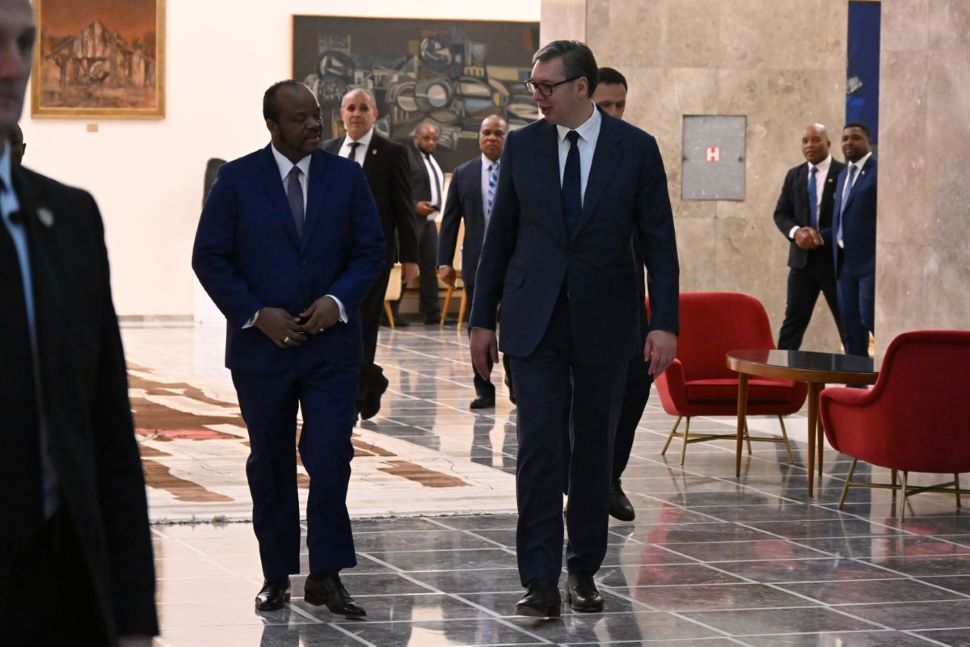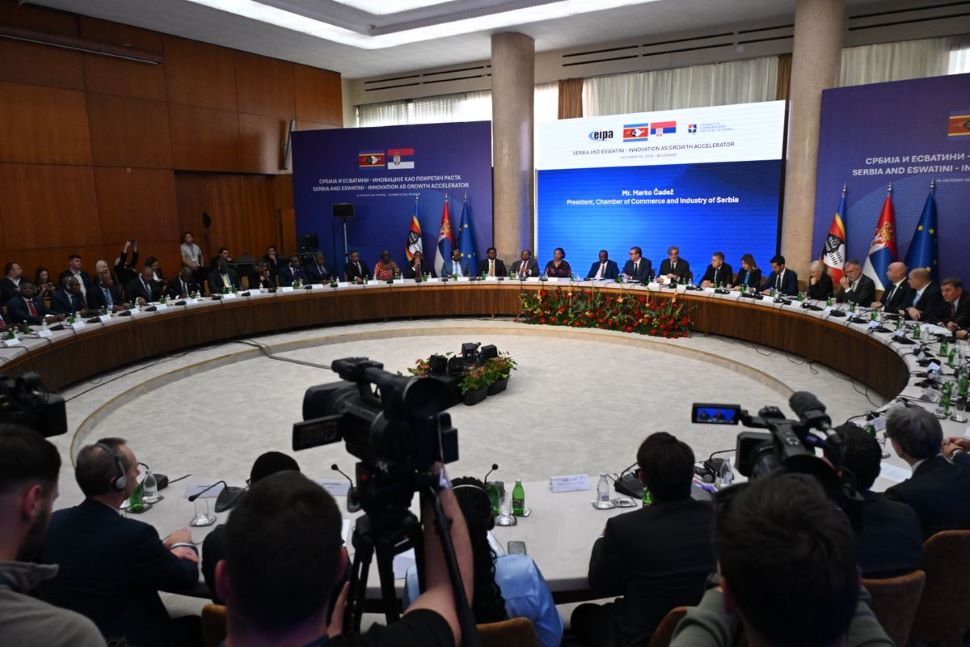Visit of the monarch of the kingdom of Esvatina, H.J. V. King Msvati III, represents to Serbia a new hope for stronger cooperation and progress between the two countries. Experts for the New Economy point out that Africa represents a large and growing market, and Serbia can benefit if it is really interested in cooperation. However, they emphasize that there is a lack of a strategic framework that would define Serbia’s direction towards Africa.
Eswatini, formerly known as Swaziland, is a small South African country with a population of about 1.2 million, known for its traditional culture and absolute monarchy. Their economy relies mainly on agriculture, especially the export of sugar cane, as well as trade links with South Africa. The Kingdom faces challenges such as a high poverty rate and the HIV/AIDS epidemic.
During the visit, King Msvati III spoke with President Aleksandar Vučić on various topics, including agriculture, science, the software industry and military-technical cooperation. Expert Danilo Babić believes that maintaining good relations with African countries is important, because strengthening bilateral relations can bring numerous benefits. He reminds that President Vučić’s wife, Tamara, recently visited Esvatini, which could open the door for a return visit.

Vučić: “Esvatina is really nice”
President Vučić pointed out that this visit symbolizes the strengthening of friendly relations and will open opportunities for improving cooperation. The signing of bilateral documents is expected to cover the areas of trade, investment, education, tourism, telecommunications and artificial intelligence, which could lead to new projects and initiatives.
According to Babić, Eswatini, as one of the poorer African countries, which could receive support through the signed agreements, will primarily have advantages. He also emphasizes the possibility of activating infrastructure projects, taking into account the tradition of companies from Serbia that worked in Africa. Babić believes that there is potential for presenting Esvatini at the EXPO exhibition in Serbia in 2027.

Babić further points out that Serbia can benefit from this cooperation, but that the key to success is political will. He notes that additional engagement in the field of cooperation and a clear strategic framework that would direct resources is necessary. He points out that Serbia currently does not have a strategy, but everything is done ad hoc. At the same time, as he pointed out, the countries of Central Europe, such as Hungary, Poland and the Czech Republic, have already made progress in engaging in sub-Saharan Africa.
During the visit, members of the delegations signed several memorandums of understanding. Memoranda were signed in the areas of trade, higher education, information technology, artificial intelligence and tourism. These agreements aim to improve cooperation between Serbia and Eswatini, creating the foundations for future projects and initiatives that will enrich relations between the two countries.
Source: The new economy
Source: boljazemlja.com


